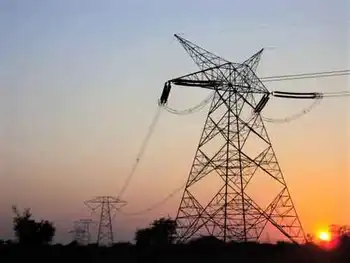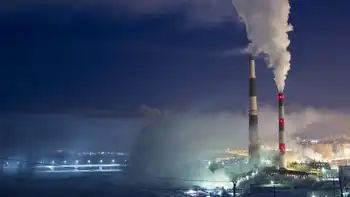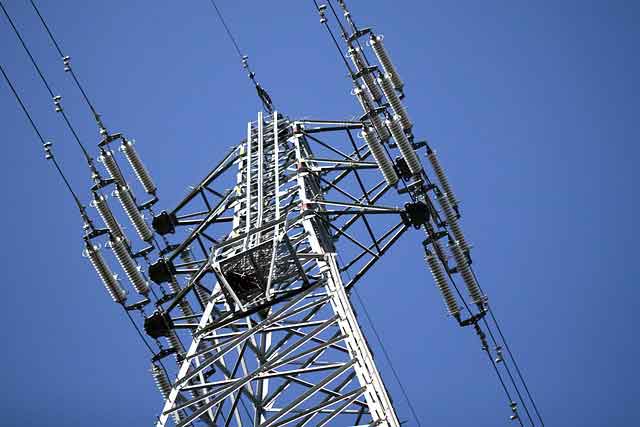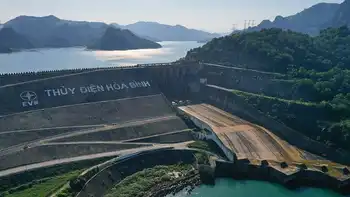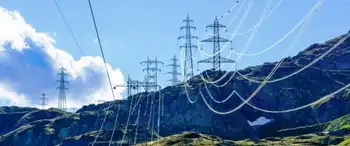Premier-designate to take on BC Hydro
By Globe and Mail
Arc Flash Training CSA Z462 - Electrical Safety Essentials
Our customized live online or in‑person group training can be delivered to your staff at your location.

- Live Online
- 6 hours Instructor-led
- Group Training Available
The chart shows the investments it has made since 1961 to keep the province's electricity grid lit up. It vividly illustrates a 20-year capital drought, the results of which are now emerging as the province's dams and transmission lines crumble and fray. BC Hydro is now starting to tackle the problems.
But premier-designate Christy Clark signaled that her families-first agenda is on a collision course with BC Hydro's plans.
The first indication came during a debate last month, when Ms. Clark was on the stage with three rivals for the B.C. Liberal leadership. While the others — all recent members of cabinet — took turns defending BC Hydro's proposed rates, Ms. Clark demurred.
"Government needs to take a more holistic look at the tax burden families bear," she said.
Her position underscored her campaign strategy of presenting herself as a fresh face, an outsider to the current B.C. Liberal government who was willing to look at things differently.
But B.C. governments rarely succeed in staring down BC Hydro. They tend to get addicted to the hefty dividends it produces. Lately, it is the billions of dollars the Crown corporation is pumping into the economy for infrastructure upgrades.
So while the Liberal government has lashed out at executive pay at BC Ferries, demanded accountability from school boards, and hounded health authorities to adopt new efficiency measures, it didn't raise an eyebrow as BC Hydro boosted its payroll costs — during a recession — by 52 per cent in the span of three years. In fact, the government has reduced the oversight of its crown jewel of Crown assets so that the corporation can fast-track projects.
BC Hydro's top officials were watching the leadership campaign closely. Now that the B.C. Liberals have chosen the one candidate who was least amenable to accepting Hydro's pitch, they are preparing for a hard sell.
"We share that concern about the impact of the rising rates on our customers and on families," Renee Smith-Valade, a BC Hydro executive, said in an interview.
Nonetheless, the corporation formally filed its application for rate increases of more than 30 per cent over the next three years — forecast to rise to 52 per cent by 2015. In an open letter, Hydro president and CEO Dave Cobb said it is necessary to maintain the province's electricity infrastructure.
"While it might be easier from a public relations perspective to put off these projects, and ask for a more modest rate increase, this would not be in the long-term interest of our customers or British Columbians generally."
What would happen if Ms. Clark says no, it is not affordable? Ms. Smith-Valade wouldn't say.
"Our next step is to sit down with her and her energy minister," she said. "So it would be premature today to speculate... what she might decide is doable, what we together might agree is worth doing. The first step is to present the best information and make sure she and her team feel comfortable with the situation as it has been outlined and is planned right now."
Pierre Guimond, head of the Canadian Electricity Association, was in Victoria to make the case for more infrastructure investment in the sector nationwide. He said in an earlier interview that Ms. Clark would be making a mistake if she puts the brakes on now.
"You start to look like Venezuela if you let it go too long — where the power shuts off at 2 in the afternoon and comes back on around 6," he said. "We are using the system my grandfather built and we've been benefiting all these years without putting a nickel in. Now its our turn."
BC Hydro intends to spend a whole lot of nickels — $6-billion worth — over the next three years on what it will say is essential work. The new premier needs to push back on some of that as a concrete demonstration of her family-first agenda.
When premier Clark and her energy minister sit down with the folks at BC Hydro for the first time, she might want to ask a few questions about:
Payroll: From 2006 to 2009, the payroll for BC Hydro and its subsidiaries increased to $558.3-million from $336.5-million. Hydro has hired more bodies to fix its aging infrastructure and to push its conservation customer programs. In that same period, the number of employees who make more than $150,000 a year increased by 143 per cent.
Ruskin station: One of the bigger projects in the works is an upgrade of an aging dam in Mission, including important seismic work. But it is a stunning amount of money considering the return: $800-million to produce enough electricity to serve 33,000 homes.
Power Smart: Since 2003, the corporation has poured nearly half a billion into a campaign to get people to use less electricity. B.C. homes are burning up just as much power. Will another $418-million that it plans to spend over the next three years have an impact?
Smart Meters: This summer, BC Hydro will start installing digital meters in homes and businesses. The $1-billion program is supposed to save money over the next 20 years — although an experiment in Ontario hasn't produced encouraging results. But the program has been exempt from a review by Hydro's watchdog.
Site C: Last year, the province announced it is dusting off plans for a third dam on the Peace River. The cost at the time was billed as $6-billion, based on 30-year-old designs. Hydro is sitting on a more realistic cost estimate - it will be released this spring - and it is sure to be much bigger.





